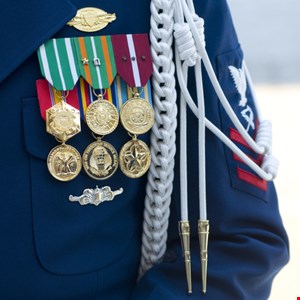- I recommend the Pixel 9 to most people looking to upgrade - especially while it's $250 off
- Google's viral research assistant just got its own app - here's how it can help you
- Sony will give you a free 55-inch 4K TV right now - but this is the last day to qualify
- I've used virtually every Linux distro, but this one has a fresh perspective
- The 7 gadgets I never travel without (and why they make such a big difference)
Coast Guard to Create Red Team

The United States Coast Guard is to establish a Cyber Operational Assessments Branch this summer and create its first ever red team.
The planned restructuring, first reported by Federal News Network, will support the cybersecurity work currently being undertaken by the Coast Guard’s blue team.
Acting as a cyber adversary, the red team will emulate the behavior of threat actors and perform penetration tests to identify any weaknesses in the Coast Guard’s cyber-defenses.
Cyber blue team branch chief, Lt. Kenneth Miltenberger, said his team will continue to fulfill its existing duties, which include performing cooperative vulnerability assessments, security consulting for acquisition operations, and endpoint scanning.
Speaking at a webinar hosted last week by the Advanced Technology Academic Research Center (ATARC), Miltenberger said: “We’re excited to see that kind of fusion — of cooperative assessments, plus [the] red team for some kind of holistic assessments.”
Among the tasks assigned to the new Cyber Operational Assessments Branch will be an in-depth analysis of the challenges and opportunities associated with 5G infrastructure.
Dan Massey, the program lead of the Department of Defense’s 5G to NextG Initiative, said 5G infrastructure will help to reduce latency in augmented reality and virtual reality training.
“If I tried to do my AR/VR training by pushing everything back to a data center from Joint Base Lewis-McChord in Washington State back to a data center in the Pentagon, I’m stuck with a number of challenges just in terms of bandwidth, in terms of latency. It’s just not going to work well.
“But if I can distribute some of those key aspects out closer to the edge, almost all the way to the edge itself and combine that with back-end processing that might be happening back at that data center, I think I have the most powerful infrastructure,” said Massey.
Another recent technological development that saw the Coast Guard make the headlines was the military service’s decision to establish a UxS Cross Functional Working Group. The group’s mission will be to help the Coast Guard exploit the capabilities of existing and future unmanned systems.

